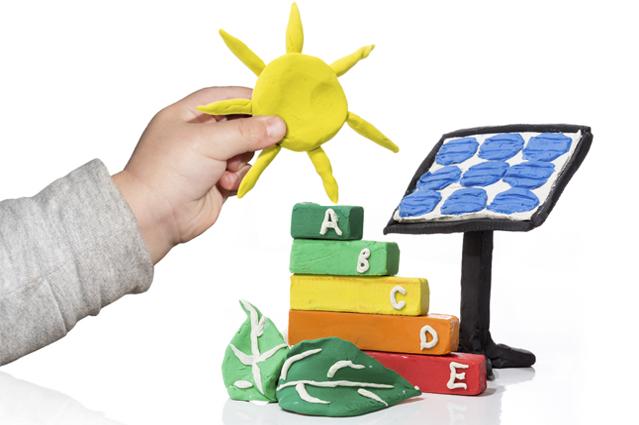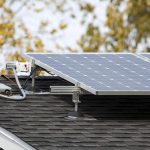The decision to choose solar power is an easy one; there is no debate that paying less for electricity is a great idea. What is often misrepresented to homeowners is information advising how homeowners should be getting access to residential solar power. The two main options are either through a solar service contract or product purchase.
In solar service, the homeowner can achieve the goal of lower electricity payments through a power or energy company, who owns and maintains the solar systems, without the obligation of any upfront costs. In a product sale, the homeowner pays a lump sum upfront, but subsequently becomes the owner of the equipment and the one responsible for all repairs and maintenance. So which option should you choose? Let’s look at which route provides homeowners with the greatest value and allows them to experience the most time saving and financial benefits throughout the life of the system.
Operation & Maintenance
One of the most notable considerations homeowners should take into account is the additional costs property owners incur. Personal property always needs to be maintained—by the owner. As an individual, you do not have access to economies of scale; a large company has the scale, or number of customers and systems, necessary to provide lower repair and maintenance costs to their customers. Not to mention, a large company is able to withstand the failure of or occasional major repairs to a system. Consequently, the individual will most likely pay more than a large company would for the same repairs.
If you plan to purchase a solar panel system, you as an individual need to know all about solar and what makes for a good installation. If you do not have an engineer check your install, then you are taking a risk. Furthermore, dealing with these issues is not a great use of one’s time and energy.
If the homeowner signs a service agreement, the aforementioned additional costs are no longer the responsibility of the homeowner; instead, the cost to insure the system, provide metering or monitoring, and provide all maintenance and cleanings for the life of the system are completely taken care of by your solar service provider. Large scale service providers have the advanced IT systems, experienced teams, cultivated relationships, purchasing power, and the knowledge of the industry that all create a distinct value for the customer.
Moving
Another factor homeowners should consider with getting access to solar is if they have long-term plans to stay in their home. Some might think owning a solar system will result in an increase in home value; or justify the homeowner in adding the price they paid to purchase the solar system to the listing price. However, the reality is a vast majority of homeowners who have owned solar systems, sell for the price the home buyer could afford, and nothing more. Homes are still bought on a price of home basis, rather than a price of home and the cost of the solar system. The idea that you will own your home long enough to get your dollars invested out of the solar system is not near as likely as many say. The home buyer will appreciate paying less for electricity, but the home buyer does not care how much you paid for your investment, so you’re not very likely to get your money out of it, let alone make a profit.
The solar service agreement represents a flexible option for the homeowner in the event of a change in home ownership. So, telling the home buyer that they can pay for power the way they have always paid for power, but pay less through a solar service agreement, is a practical proposal. Again, the home buyer is locking in a lower cost of power; which means that the new homeowner is going to have a lower electric bill, and that is attractive to buyers.
Opportunity Cost
The representation of possible savings often becomes the determining factor for homeowners in the product sale. Unfortunately, the savings presented during the product sale are often inaccurate. When calculating true electricity savings, homeowners need to consider both the opportunity; or hard, cost of their money and the sum of all burdened costs that accompany the purchase of a solar system.
Opportunity cost plays a big role in personal finance; and when weighed appropriately, should dictate what we spend our money on. However, what’s often ignored are the indirect costs; or opportunities lost by choosing one alternative over another. For example, homeowners must consider how much money they could have earned if the sum of money they would have spent on a solar system was invested in a bond or stock fund. In that case, the homeowner would still retain access to their money while achieving much if not all of the listed solar “savings.”
The homeowner must also deduct the amount of money that remains after all maintenance and insurance expenses have been met. As mentioned above, maintenance expenses will add up to a considerable amount over the years. Once one considers the appropriate personal cost of the upfront money spent and the projected maintenance expenses, the amount of money that is left is the true savings generated by the solar system.
Considering the additional responsibilities that come with system ownership, performing the correct analysis to calculate true electricity savings is the key to making sure that you are making the right decision as to how to get cheaper power from solar.








Leave A Comment